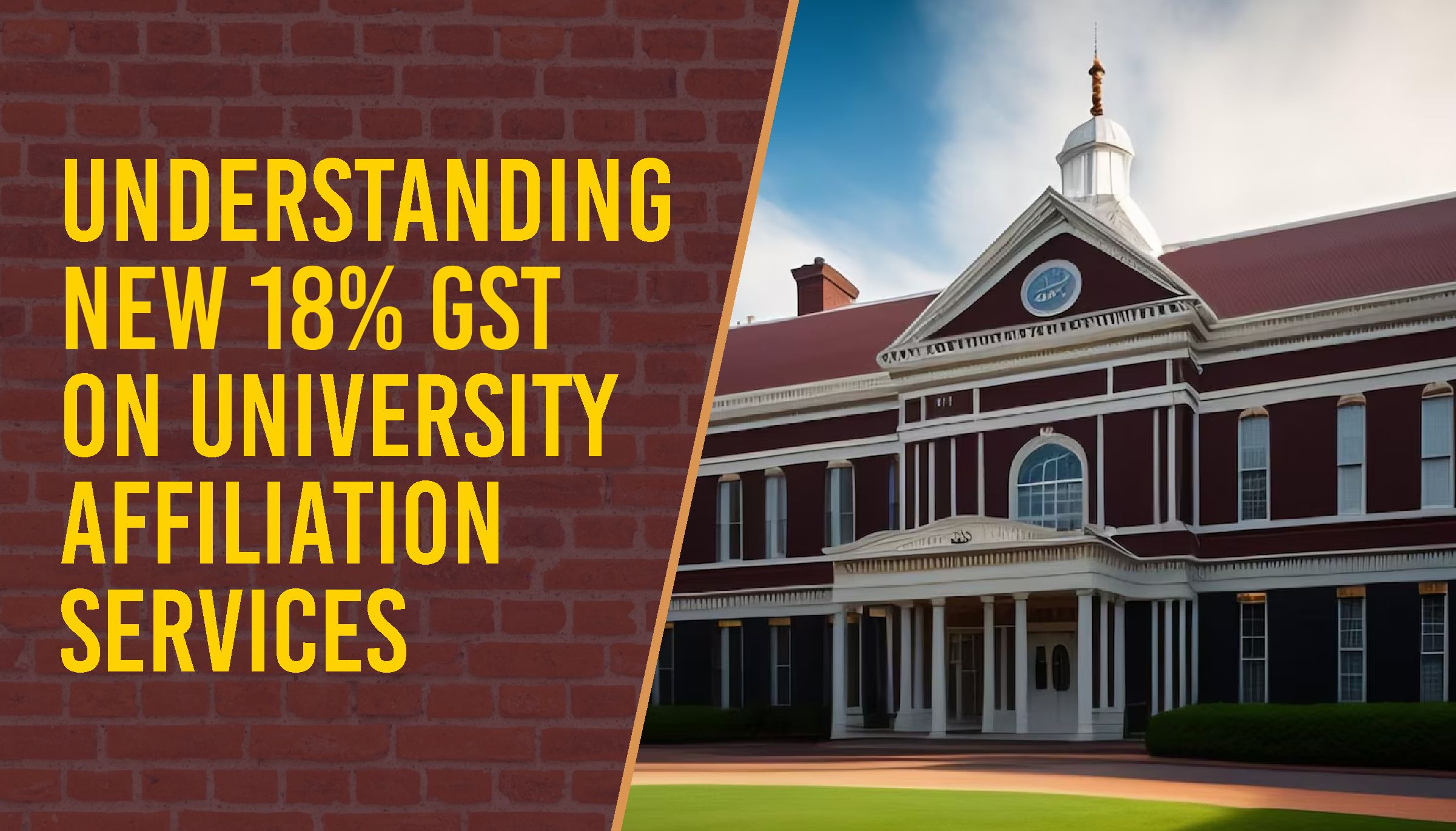The Impact of 18% GST on University Affiliation: What You Need to Know

On October 11, 2024, the Central Board of Indirect Taxes and Customs (CBIC) released circular no. 234/28/2024-GST, clarifying the application of Goods and Services Tax (GST) on affiliation services provided by universities to colleges. This decision has significant tax implications for the education sector, particularly regarding how universities manage their financial relationships with affiliated colleges.
Understanding the Tax Issue
The recent circular states that an 18% GST applies to affiliation services offered by universities to colleges. These services involve assessing whether colleges meet specific criteria necessary to offer degree programs, which include evaluating:
-
Infrastructure: The physical and technological resources available to the college.
-
Financial Stability: The college’s financial health to sustain its operations and provide quality education.
-
Faculty Qualifications: The credentials and experience of the teaching staff.
Previously, these services were exempt from GST under Notification No. 12/2017-CT(R) dated June 28, 2017. However, based on recommendations from the 54th GST Council meeting, the CBIC clarified that the affiliation services rendered by universities do not fall under this exemption.
The Circular: Key Tax Clarifications
In its circular, the CBIC made it clear that:
“Thus, as recommended by the 54th GST Council, it is hereby clarified that the affiliation services provided by universities to their constituent colleges are not covered within the ambit of exemptions provided to educational institutions in Notification No. 12/2017-CT(R) dated June 28, 2017, and GST at the rate of 18% is applicable on the affiliation services provided by the universities.”
Implications for Colleges
Increased Operational Costs:
The introduction of an 18% GST on affiliation services means colleges will face higher operational costs. This tax burden could compel institutions to adjust their fee structures or reduce expenses elsewhere.
Compliance Requirements:
Universities and colleges will now need to enhance their compliance efforts related to GST. This includes accurate invoicing, tax filing, and record-keeping for the newly taxable services. Institutions may have to allocate resources for training and compliance systems, diverting funds from educational initiatives.
Impact on Student Fees:
As colleges grapple with increased costs due to the GST, there may be a direct impact on tuition fees. Institutions may find themselves in a position where they have to raise fees, potentially limiting access for some students, particularly those from lower-income backgrounds.
Clarity for Future Taxation:
The circular provides a clear directive on the taxation of affiliation services, which will aid universities and colleges in their financial planning. Knowing that these services are taxable helps institutions budget and allocate resources more effectively.
Tax on School Affiliation Services:
The circular also extends to affiliation services provided by Central and State educational boards or councils to schools. Similar to universities, these services are also subject to GST. However, services provided to government schools will be exempt from GST, effective October 10, 2024, under Notification No. 08/2024-Central Tax (Rate).
The CBIC’s decision to impose an 18% GST on affiliation services marks a significant change in the tax landscape for educational institutions. This move introduces new financial challenges for colleges and universities, requiring them to enhance compliance measures while managing increased operational costs. As stakeholders navigate this new tax environment, careful planning and adjustment will be crucial to maintaining educational quality and accessibility. Institutions must now focus on adapting their financial strategies to account for the implications of this new GST requirement, ensuring they can continue to provide high-quality education while meeting their tax obligations.
Original CBIC Circular No 234/28/2024-GST
